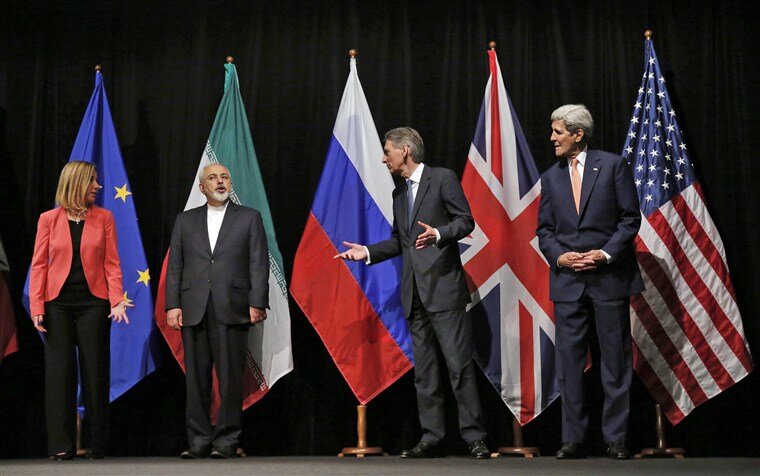Things moving in right direction, French diplomat says of JCPOA

TEHRAN - Iran has given encouraging signs in recent days about opening informal talks with world powers and the United States, two European diplomats said on Thursday after European powers scrapped plans to criticize Tehran at the International Atomic Energy Agency (IAEA), according to Reuters agency.
The European powers, all parties to the 2015 deal, have been lobbying for the IAEA’s 35-nation Board of Governors to adopt a resolution at its quarterly meeting this week expressing concern at Iran’s latest moves, including ending the basis for snap IAEA inspections.
Iran’s Foreign Ministry spokesman Saeed Khatibzadeh praised the EU decision and noted the move kept diplomatic efforts alive.
“Today’s development can preserve the path of diplomacy that was created by Iran and the IAEA and pave the way for returning to full compliance by all parties to the JCPOA”, Iranian state media quoted him as saying, referring to the 2015 Joint Comprehensive Plan of Action nuclear deal.
Iran has so far refused to participate in a meeting proposed by the EU between world powers and the United States on the revival of 2015 nuclear deal.
“Things are moving in the right direction and we have had positive signals this week and especially in last few days,” a French diplomatic source said. The diplomat noted the goal is to get everyone around the table before the start of Nowruz, the Iranian New Year, on March 20.
“The window would also narrow from mid-April when Iran’s presidential election campaign kicks in,” he added.
“We are putting all our efforts so that this (meeting) can take place in the days or coming weeks,” the source asserted.
A second European diplomat also expressed hope there had been positive signals from the Iranian government.
Diplomats said the Biden administration must avoid a “stop and go” situation where one president agrees to something, only to be reversed by their successor. That means winning Democratic and Republican support.
The diplomatic resources asserted, “It doesn’t have much choice but to expend political capital on this because in the campaign they talked about a return to (the 2015 deal) and a broader deal,” adding, “What needs to be built is a more consensual and bipartisan framework that survives a change in administration.”
Diplomats expressed concern the obstacle for negotiations is that Iran is determining preconditions for attending to guarantee that there would be a pathway to sanctions relief after the meeting, something the U.S. could not agree with.
A senior U.S. official claimed, “It’s not a matter of giving an assurance of something that we’d do. It’s sitting down and making sure that both sides do – as a first step, as a second step, whatever it is – that both sides are taking positive steps,” saying, “We can’t tell them in advance what we’re going to do if we don’t know what they are going to do.”
“Internal Iranian politics is causing constraints for the Iranian government which does not want to be at the same table as the Americans for the first time in years without being sure that it would lead at the end of this meeting to an effective process to lift sanctions,” the French diplomat remarked.
Britain, France and Germany decided to pause the submission of a resolution critical of Iran at the IAEA on Thursday to not destroy the prospects for diplomacy and after what they said were concessions gained from Iran.
U.S. President Joe Biden’s refusal to suggest sanctions relief to Iran may have frustrated Tehran’s authority but it has won some praise at home despite his failure so far to persuade Iran to begin talks with 5+1 group.
Elliott Abrams, former President Donald Trump’s special envoy for Iran, described Biden’s unwillingness to give Tehran sanctions relief before any talks as “sensible” action.
“Negotiation is always a give and take but we should not pay them just for the pleasure of their company at the negotiating table,” Abrams claimed.
Trump bequeathed Biden a problem by abandoning the 2015 agreement that limited Iran’s nuclear program in return for the lifting of economic sanctions.
The result is a diplomatic and military challenge as Biden’s administration tries to rejoin the nuclear deal and eventually widen the accord to restrict Iran’s nuclear program and its missile program, as well as constrain its regional influence.
Trump reinstated U.S. economic sanctions on Iran after withdrawing from the nuclear deal in 2018. In response to U.S. measures, after waiting a year, Iran took its own steps to scale back its commitments under the deal by expanding its nuclear activities.
EE/PA
Leave a Comment